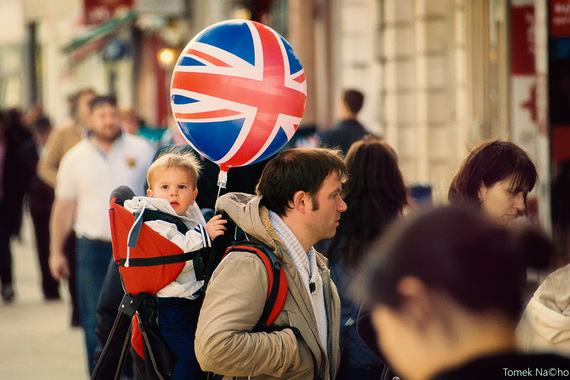I just lost part of my identity. And it wasn't my choice.
For 23 years, the EU has defined Europe as something greater than the sum of its parts. Those that remember a time before its creation voted with their feet in the recent UK referendum with 60% of over 65s voting to leave. In today's world that's more connected, intertwined, and complex than ever before, is it even possible for one rainy island to indulge its vision of splendid isolation?
In the post-world war era before the creation of the EU, the Internet wasn't yet invented, commercial air flight was in its infancy, and, well, Queen Elizabeth was on the throne but she's pretty much a permanent feature now so that doesn't count.
The UK voting to leave has changed the way we're perceived in modern Europe. This was never a vote that would be won or lost based on economics, but on perception. Though there may be plenty that voted leave based on strong beliefs and well-researched arguments, but the message we just sent to Europe is you're not welcome, we're not one of you.
I'm an expat living in Germany. You might think, what's this referendum got to do with me? I chose to leave the UK, should I even get a say? A recent survey of Brits abroad by expat network InterNations shows that 94% of British expats felt the referendum was a personal concern, with eight in ten fearing it would change their living situation abroad.
As an expat, where you're from defines you as much as where you're now living. Your accent and language help form your friendships, and locals use nationality as a means of beginning to understand this stranger in their midst.
The problem is that as a result of Brexit, my nationality is now associated with some negative things: separatism, short-termism, and even racism. These aren't qualities I identify with, or want to be associated with; I've become estranged from my British identity at the very point that I'm no longer European either. Overnight, I went from being a British expat living in the EU to... uncertain.
Being able to live abroad multiple times has meant I am better able to contribute to the British economy: I've seen how business is done in America, I know how people communicate in China, and I bring that insight with me when I'm working in the UK. We've heard a lot about the risks of open borders, but little about what we gain not only economically but socially and culturally.
In a couple of years' time, there's a very real risk that we'll be limiting our most talented, curious young minds to a country a third of the size of Texas, robbing them of the opportunity to truly understand the world outside their British bubble by living abroad.
At the moment, I live in a strongly pro-EU country, Germany. Most likely to enforce strict sanctions to prevent Brexit fever, I face uncertainty not only about where I can live and work, but how I define myself in this new, separate yet evermore connected world. Guess I'll just have to wait and see if that Irish passport application goes through!
